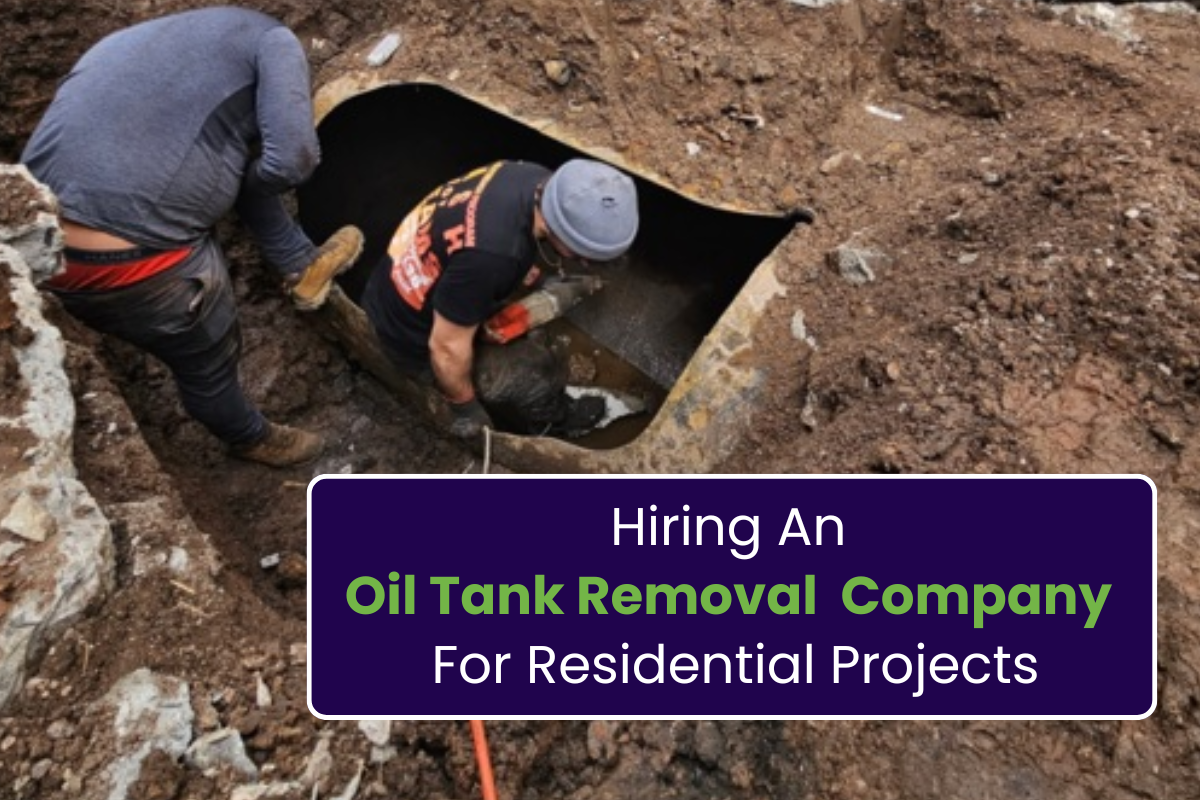Oil tanks were once a staple of residential heating systems across New Jersey. But as properties age and environmental concerns increase, more homeowners are opting to remove old, underground storage tanks—especially those that have been out of use for years. Whether you’re planning to sell your home or are concerned about environmental safety, removing an oil tank is not a job to take lightly. Hiring a qualified oil tank removal company in NJ can help you avoid costly surprises and ensure the job is done safely, legally, and efficiently. Here’s what to consider before making your decision.
Proper Licensing and Insurance
The first and most important factor to check is whether the company is fully licensed and insured to handle oil tank removal in New Jersey. Oil tank removal often involves excavation, environmental testing, and potentially hazardous materials. You’ll want a company that holds proper state certifications and is familiar with New Jersey Department of Environmental Protection (NJDEP) regulations. Adequate insurance coverage, including general liability and workers’ compensation, protects you from legal and financial liabilities in case something goes wrong during the process.
Experience with Residential Projects
Not all oil tank removal contractors specialize in residential projects. Some focus primarily on commercial or industrial properties, which may have very different requirements and timelines. Look for a company with a proven track record in handling residential oil tank removals. Experienced contractors understand the nuances of working in residential neighborhoods, including navigating local ordinances, preserving landscaping, and maintaining clear communication with homeowners.
Transparent and Detailed Estimates
Before starting the project, ask for a written estimate that outlines all expected costs, including excavation, tank removal, disposal, backfill, and restoration of your property. The company should also include any costs related to soil testing or additional cleanup if contamination is found. Be wary of quotes that seem unusually low—they may not include essential components of the job, leading to surprise charges later.
Environmental Compliance and Soil Testing
Oil tank removal isn’t just about pulling the tank out of the ground. There’s also the potential for oil leaks that may have contaminated the surrounding soil. A reputable oil tank removal company in NJ will conduct proper soil testing both before and after removal. If contamination is detected, they should also be equipped to provide soil remediation services, ensuring the affected area is treated and returned to safe environmental standards. This is especially important if you plan to sell the property or build on the site in the future.
Positive Reputation and Reviews
Check online reviews and ask for references. A reliable company should have a solid reputation with past clients, especially in residential work. Look for companies with high ratings on platforms like Google, Yelp, or Better Business Bureau, and take note of any complaints related to unfinished work, poor communication, or unexpected fees. Don’t hesitate to ask the company directly for testimonials or case studies related to residential tank removal.
Availability of End-to-End Services
Many homeowners prefer a one-stop solution that handles everything from permits and inspections to final landscaping. Hiring a company that offers end-to-end services can simplify the process significantly. This includes acquiring local permits, coordinating with inspectors, managing oil disposal, conducting soil analysis, and performing cleanup if contamination is present. If the company can’t handle everything in-house, make sure they work closely with trusted subcontractors who specialize in soil remediation services and environmental testing.
Responsiveness and Customer Service
Prompt communication and professionalism are essential in any home service, and oil tank removal is no different. The company should be willing to answer all your questions, explain the process in layman’s terms, and keep you informed at every step. If you’re having a hard time getting a callback or clear answers before the work even begins, it may be a red flag regarding how the project will be handled once it’s underway.
Proper Documentation
After removal, you should receive full documentation, including permits, tank closure reports, and results from any soil testing conducted. This paperwork is critical for your records and will likely be required during a home inspection if you ever decide to sell the property. Without proper documentation, you could run into legal and financial complications down the road—even if the tank was removed safely.
Final Thoughts
Hiring the right oil tank removal company in NJ isn’t just about cost—it’s about expertise, safety, and protecting your property’s long-term value. From proper licensing and insurance to experience with residential projects and the ability to provide soil remediation services, the right partner will make a complicated process much smoother and more secure. Before you commit, do your due diligence, ask detailed questions, and insist on transparency at every stage. With the right professional team, you can remove the risk—literally—from your yard and gain peace of mind knowing your property is in good hands.

